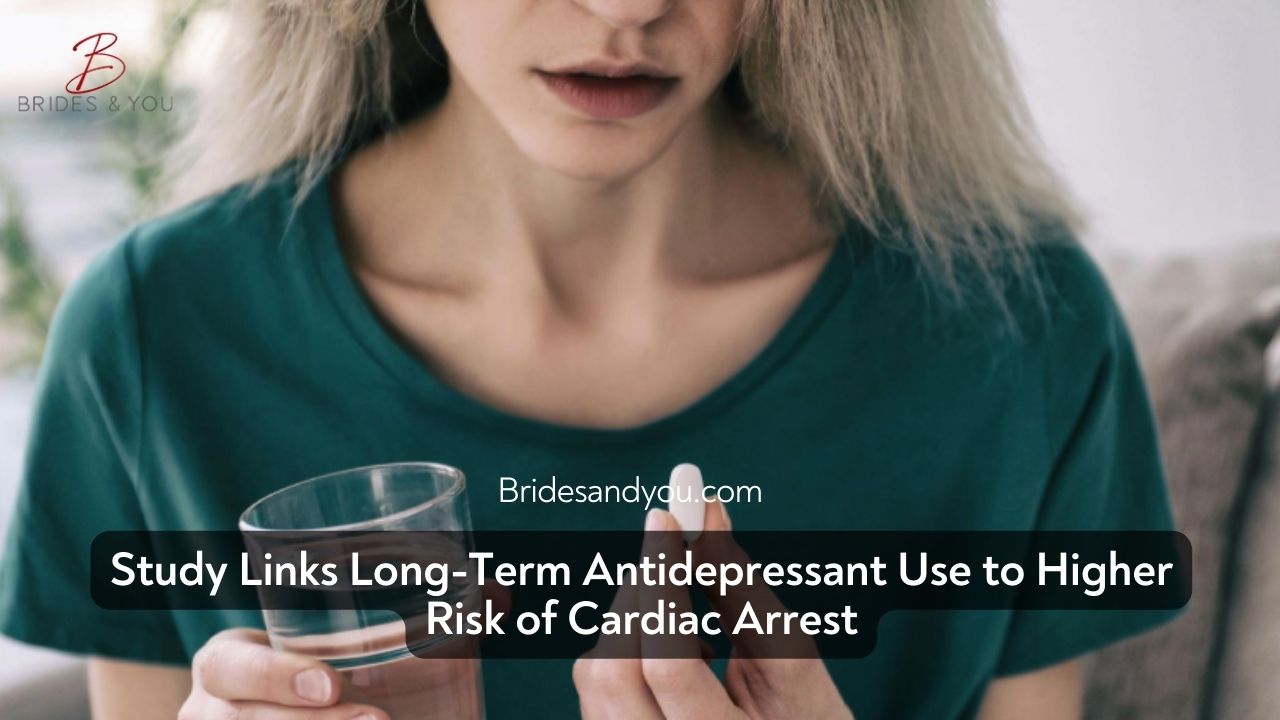Now Reading: Long-Term Antidepressant Use May Be Linked to Increased Risk of Sudden Cardiac Death, New Study Warns
-
01
Long-Term Antidepressant Use May Be Linked to Increased Risk of Sudden Cardiac Death, New Study Warns
Long-Term Antidepressant Use May Be Linked to Increased Risk of Sudden Cardiac Death, New Study Warns

Understanding the Link Between Mental Health Medication and Sudden Cardiac Death
Antidepressants have become an essential part of mental health care, helping millions of people around the world manage depression, anxiety, and related conditions. For many, these medications are lifesaving and offer a much-needed sense of stability and hope. However, a new Danish study has raised important concerns about the long-term impact of antidepressants on heart health—particularly when it comes to the risk of sudden cardiac death (SCD).
The study was presented at EHRA 2025, the European Society of Cardiology’s annual congress, and it has already sparked conversations across the medical community. While antidepressants are undoubtedly crucial in managing chronic depression, their long-term cardiovascular effects are now being re-examined in light of this compelling new evidence.

What Is Sudden Cardiac Death (SCD)?
Sudden cardiac death happens when the heart abruptly stops beating, often without warning and typically within an hour of symptom onset. It is a serious and often fatal event, responsible for around 50% of all deaths caused by cardiovascular disease. Unlike a heart attack, which is caused by blocked blood flow, SCD is typically the result of electrical disturbances in the heart.
The Danish Study: Key Findings
This groundbreaking research was led by Dr. Jasmin Mujkanovic from Rigshospitalet Hjertecentret in Denmark. The team analyzed national medical records and death certificates of Danish adults aged 18–90 from the year 2010, aiming to explore the association between antidepressant use and sudden cardiac death.
Here are some key takeaways from the study:
- Using antidepressants for 1–5 years was linked to a 56% higher risk of sudden cardiac death compared to non-users.
- Those who used antidepressants for six years or more had more than double the risk (2.2 times higher) than those who did not use them.
- The younger the user, the higher the relative risk. In fact, adults aged 30–39 saw a threefold increase in risk with 1–5 years of use and a fivefold increase with more than six years.
- Even people in the 50–59 age group experienced double the risk after short-term use and four times the risk after long-term use.
- While the relative risk increased, the absolute risk remained lower for younger people, largely due to fewer age-related cardiovascular issues.
The Heart-Depression Connection: What’s Really Going On?
One of the biggest questions that remains is why antidepressants might be linked to higher risks of cardiac events. Some antidepressants are known to cause QT interval prolongation, a disruption in the heart’s electrical rhythm that can lead to arrhythmias and, in some cases, sudden death.
However, it’s important to note that the study found an association, not a cause-and-effect relationship. That distinction is crucial. Experts like Dr. Cheng-Han Chen, an interventional cardiologist, point out that depression itself is a known risk factor for heart disease. This means the condition being treated might be just as responsible as the medication used to treat it.
What Should Patients Do?
If you or someone you know is taking antidepressants, especially long-term, this information might feel alarming. But experts urge caution and strongly advise against stopping medications without consulting a doctor.
Dr. Grant Simons, a heart rhythm specialist, emphasizes that this was an observational study. That means while it identified a trend, it did not prove that antidepressants directly caused sudden cardiac death. Other factors—such as the severity of the depression, lifestyle choices, or other medications—might be contributing to the higher risks observed.
Are All Antidepressants the Same?
Not all antidepressants carry the same potential risks. Different classes, such as SSRIs, SNRIs, TCAs, and MAOIs, may affect the heart differently. The researchers suggest that more targeted studies are needed to explore which medications might carry higher risks and in which populations.
Until then, doctors will continue to weigh the benefits and risks of antidepressants individually for each patient.
Takeaway: A Reminder for Mindful Mental Health Care
Mental health is just as important as physical health, and antidepressants continue to play a vital role in the lives of many. However, this new research is a reminder to approach long-term treatment plans with care, keeping regular check-ins with healthcare providers and being mindful of both emotional and physical health.
If you are currently taking antidepressants or considering them as part of your treatment, talk to your doctor about your heart health, especially if you have a family history of cardiac issues.










